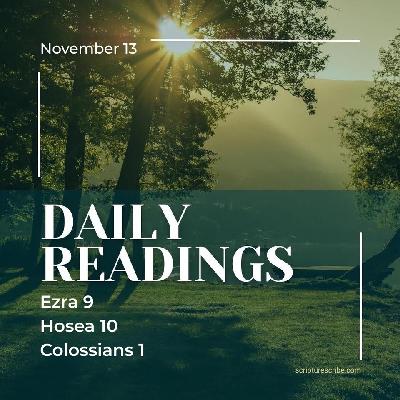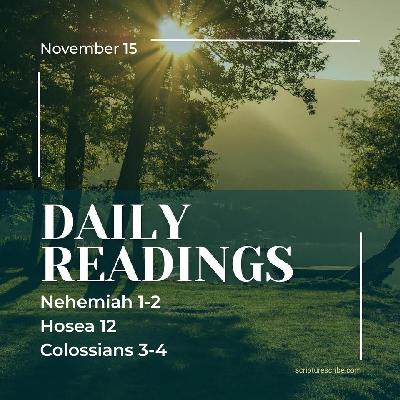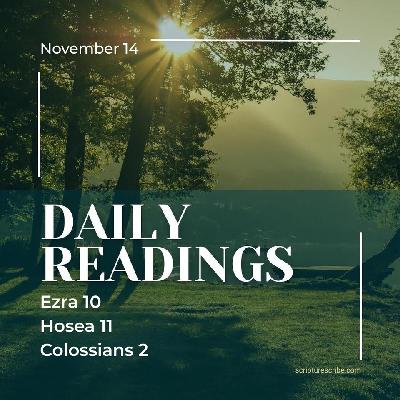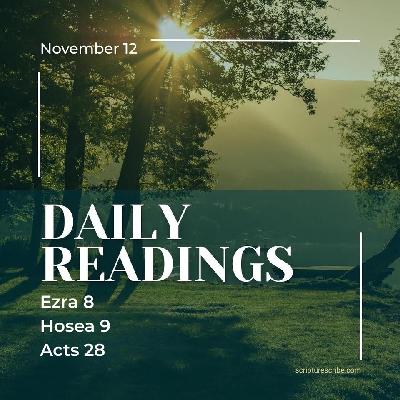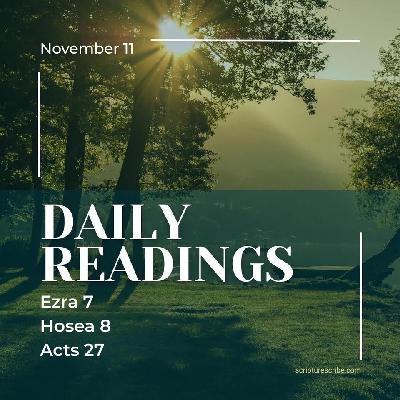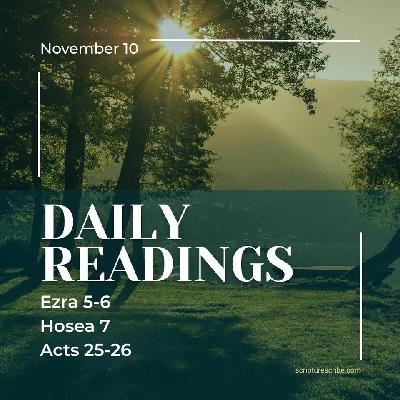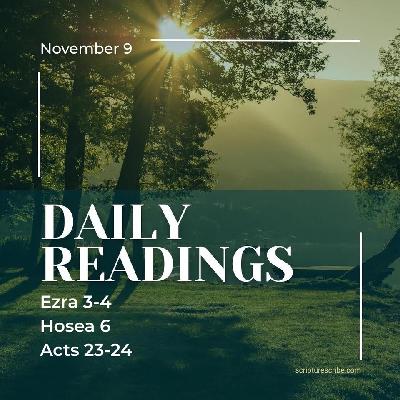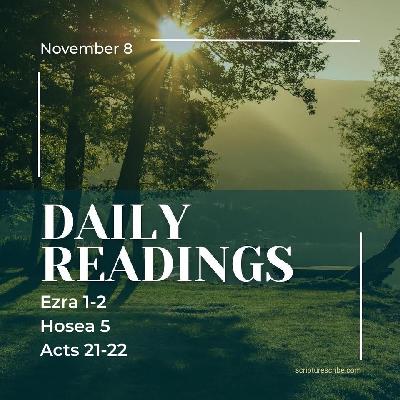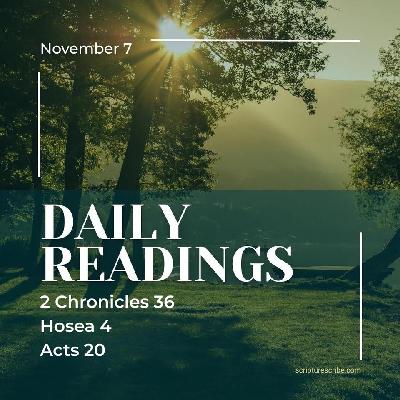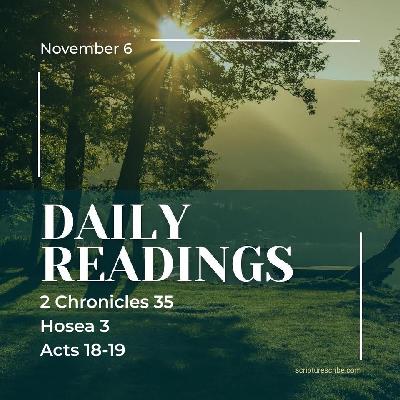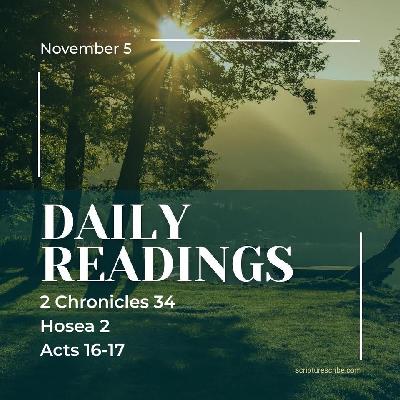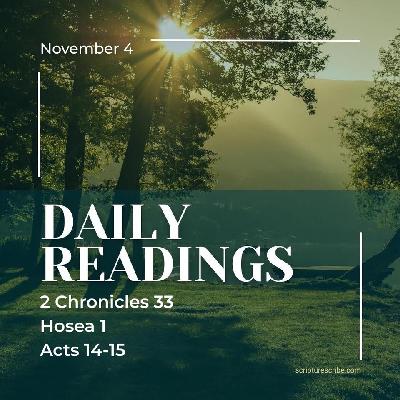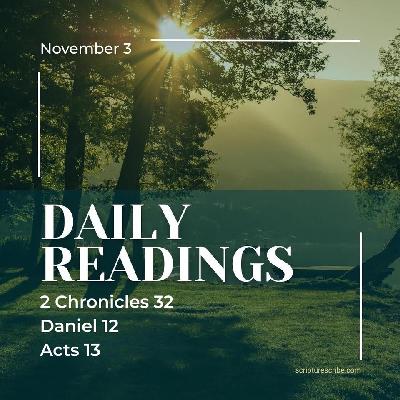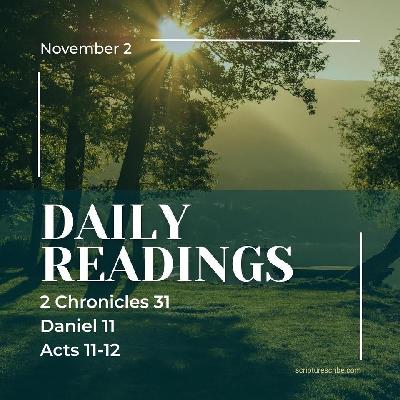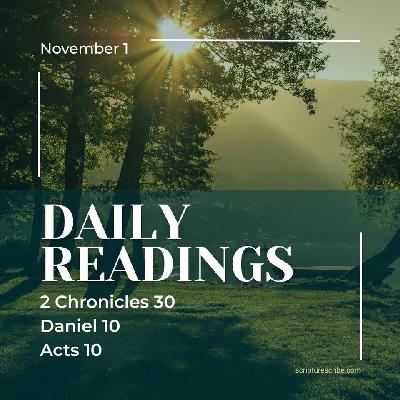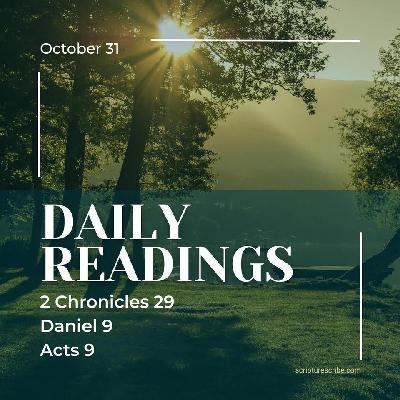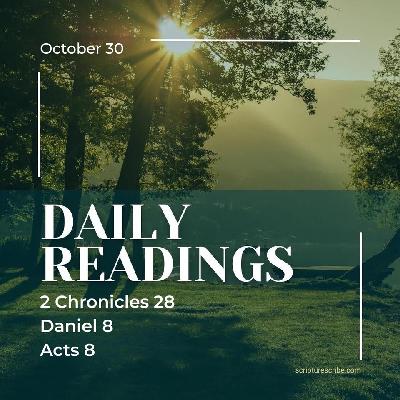Thoughts on the Bible Readings November 13th (Ezra 9; Hosea 10; Colossians 1)
Description
Ezra 9 tells of the problems of those who had married nonbelievers. Verse 4 tells that the rulers and officials had been at the forefront of those who had disobeyed God's command about this. The reader should look at Malachi 2verses10-16 and Nehemiah 13verses23-27 to understand Yahweh's views on this subject; and why His prophets were so strong in denouncing this practice. From verse 10-15 Ezra seeks God's forgiveness of His people for their wrongful ways in marrying out of the Truth and counsels all of God's people to forsake that dangerous and evil course.
Hosea 10 tells of a vine that produced no fruit for God. How often do the prophets and the Lord Jesus Christ take up this theme cp Isaiah 5 and consider the number of references in the last week of our Lord to the barrenness of the fruitless, but showy fig tree. Also see John 15 where our Lord comments on himself being the vine. Without fruit a vine is useless - its wood is poor fuel; its wood cannot be used to make anything. We are useless unless we are producing the fruit of the spirit for God in our lives (see Galatians 5verses22-25; and Ephesians 5verses8-16). But for Israel when the LORD looked at their actions, instead of fruit, He saw poisonous weeds. Instead of sincere worship of Yahweh He saw the idolatrous calf worship. Bethel (meaning "the house of God") becomes Bethaven ("the house of vanity" - or "nothingness"). The result of this would be the delivering up to captivity of Israel to nations who were themselves ruled by idolatry. Israel's sinfulness was evident from earliest times, even when the Tabernacle was at Gibeah. The Lord God would again bring them under the yoke, when they will finally learn righteousness and will open their hearts to God as the poetic symbol of breaking open the fallow ground of their hearts suggests. By doing this God would be able to rain blessings on them. But the coming judgment would be a necessary part of helping Israel to learn this.
Paul sent the letter to the Colossians in about 62 AD. He never personally visited the region where there were two groups of believers - one in Colossae and the other in Laodicea. The one letter was read by both at this time and about 34 years’ time when another letter was sent in 96 AD by the Lord Jesus Christ. The area was exceptionally fertile and lay in a very rich valley. The epistle commenced with the greeting "Grace ('charis' the Greek greeting) and peace ('shalom' the Jewish greeting) coming to the believers from God our Father. This is followed by thanksgiving and prayer for their faithfulness in the gospel as reported to the Apostle from Epaphras. The believers were increasing in knowledge and love. But the greatest of all thanks was to be expressed to God, our Father, who had "qualified us to share the inheritance of the saints in light ... and has transferred us to the Kingdom of His beloved Son" (verses 12-13 ESV). Then from verses 14-23 Paul tells us of the pre-eminence of the Lord Jesus Christ the Son of the Father. Our Lord Jesus is the beginning (Gk 'archegos') and head of God's new creation and is the firstborn (Jesus firstborn by birth, death and resurrection) of that creation; the firstborn from the dead to be raised to eternal life. Verses 24-29 tell of Paul's suffering for all Gentile believers, that he might share and participate in the sufferings of Christ (as part of his body, which we, the ecclesia are). In verse 27 we have the key verse and theme of the book, "Christ in you (i.e. each of us) the hope of glory".
Thanks for joining us - we pray you found these comments helpful in your appreciation of God's words, join again tomorrow

